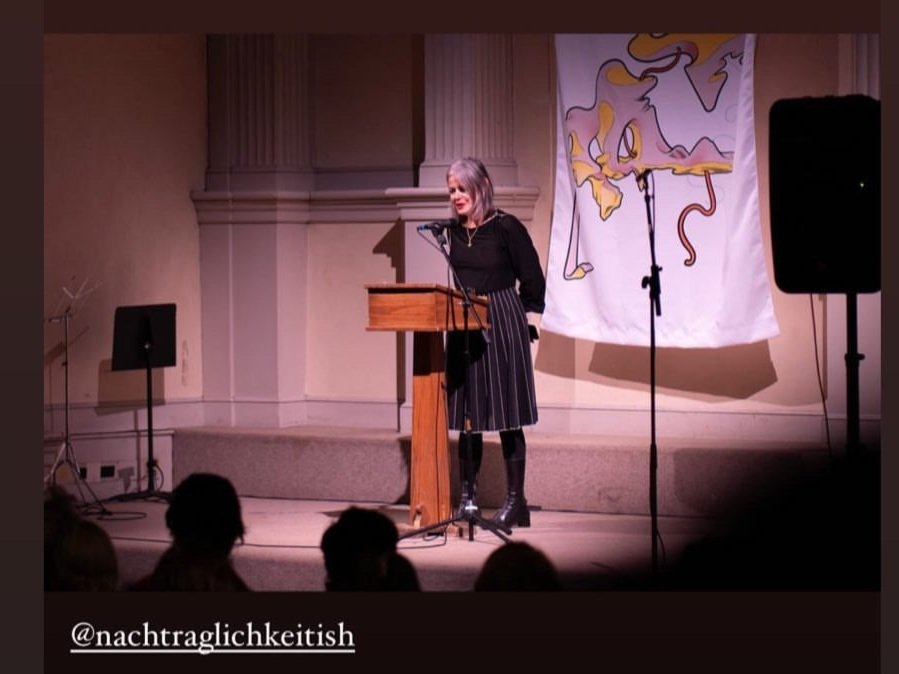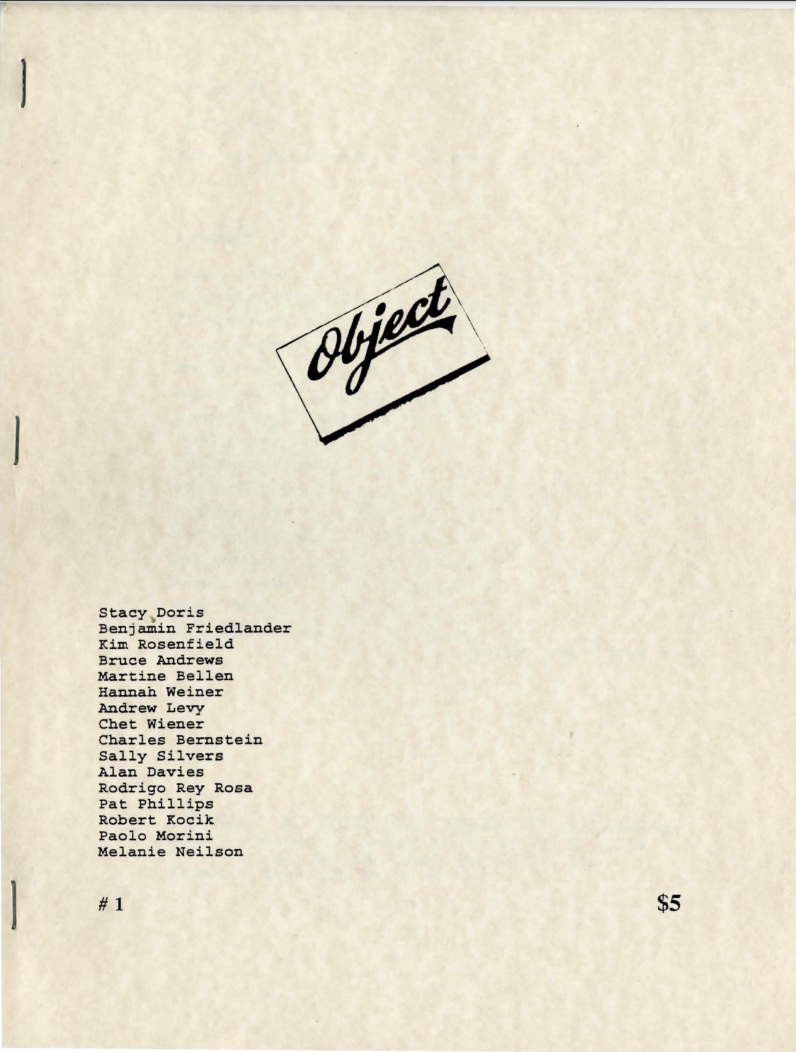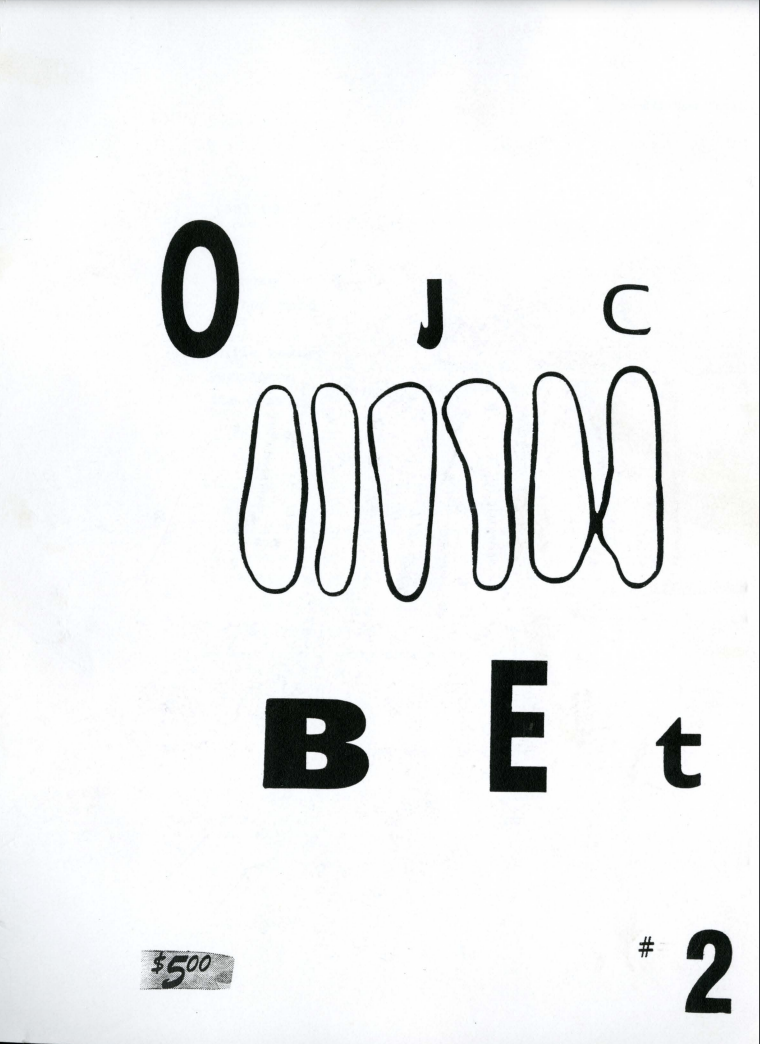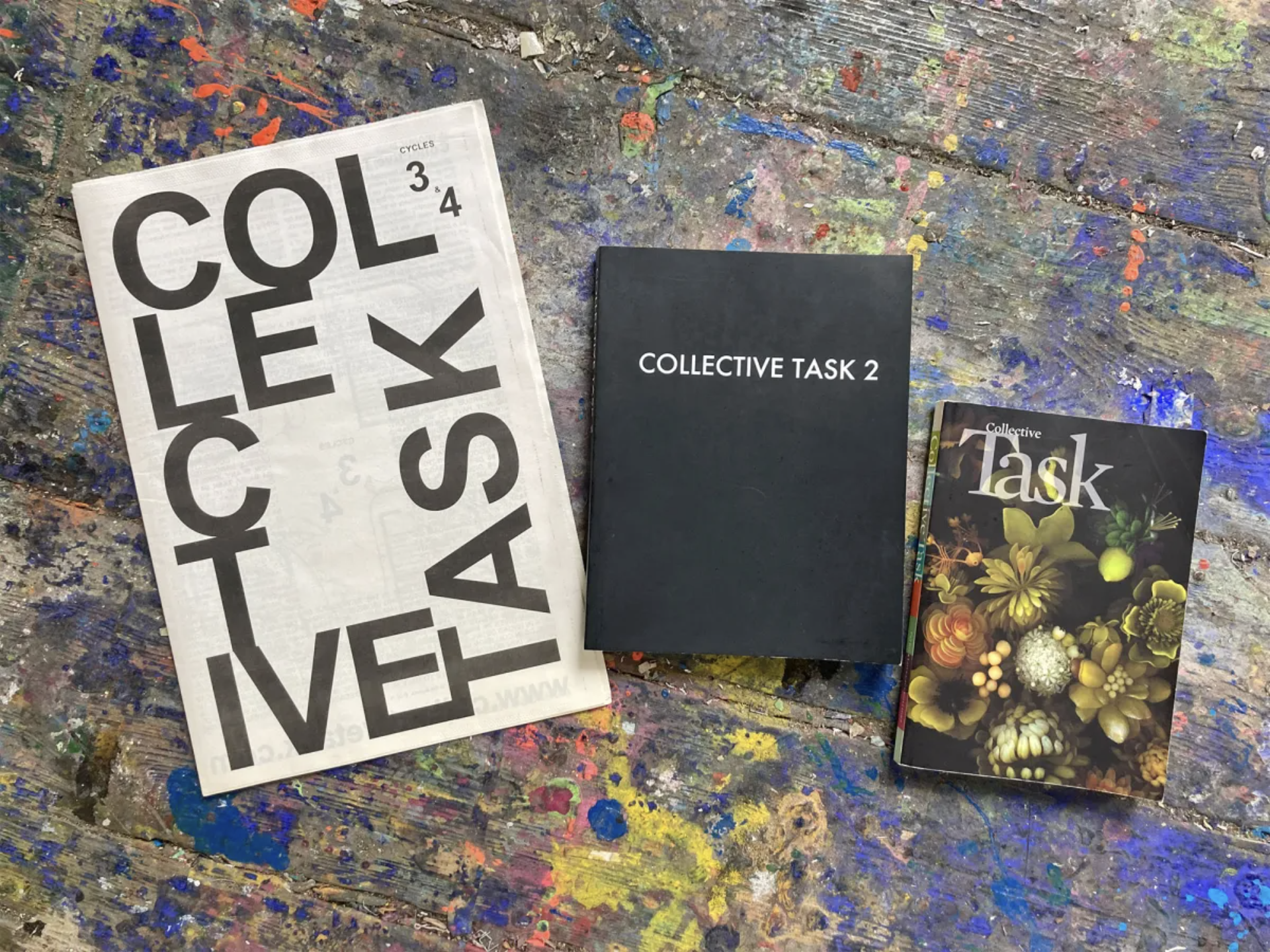Performances
Reading at St. Mark Poetry Project’s 50th Annual New Year’s Day Marathon
Read during the 9th hour of the Marathon at St. Mark’s Church-in-the-Bowery. 7-8 PM: Hosted by Kyle Dacuyan.
Featuring performances from: Amirtha Kidambi; Fred Moten; Morgan Bassichis; Cecilia Vicuña; Kim Rosenfield; Leah Hennessey; Patricia Spears Jones; Ted Dodson; Malcolm-x Betts; Cecilia Gentili; Cuthwulf Eileen Myles with Ryan Sawyer & Steve Gunn; Pamela Sneed; Kaleem Hawa
photo by Gary Leonard
Reading at Beyond Baroque’s Maximum Return
Excerpt from Some of Us and Phantom Captain, November 10th, 2023 at Beyond Baroque Literary/Arts Center in Venice Beach, CA. With Jack Skelley and Exene Cervenka (pictured).
Excerpt from Phantom Captain
As read by the poet, March 2022. Recorded for the Audiatur Festival for New Poetry 2021-2022 in Bergen, Norway.
Conversation with Jack Skelley
For the “Encounters at the End of the Book” video series by Punctum Books, regarding the second publication of re:evolution for Punctum’s Special Collections project. Recorded May 2023 .
Reading with Chris Kraus, with introduction by Mónica de la Torre
Performed on April 3rd, 2024, at St. Mark’s Poetry Project.
Trailer for USO: I’ll Be Seeing You
Created for the Cold Open Verse Trailer Reel and Printed Matter’s 2016 New York Art Book Fair at MoMA PS1, Queens, NY.
My red, red blood by Marina Rosenfeld
Video installation and live performance using text from Kim Rosenfield’s U.S.O: I’ll be Seeing You. Performed by Ensemble Neon at Dramatikkenshus, Oslo, in December 2011.
Flarf Vs. Conceptual: Kim Rosenfield
Performance at the Whitney Museum, NYC, April 2009.
Other Published Materials
-
Spring 1993
Editors:
Kim Rosenfield & Robert Fitterman
Contributors:
Stacy Doris, Benjamin Friedlander, Kim Rosenfield, Bruce Andrews, Martine Bellen, Hannah Weiner, Andrew Levy, Chet Wiener, Charles Bernstein, Sally Silvers, Alan Davies, Rodrigo Rey Rosa, Pat Phillips, Robert Kocik, Paolo Morini, Melanie Neilson
-
Editors:
Kim Rosenfield & Robert Fitterman
Contributors:
Elaine Equi, Franck Pruja, Maggie O' Sullivan, Jeff Hull, Jerome Sala, Joan Retallack, Françoise Valery, Sianne Ngai, Ron Silliman, A.L. Nielsen, Stephen Ratcliffe, Kit Robinson, Gary Sullivan, Sabine Herrmann, Klaus Killisch, Benjamin Friedlander, Laynie Browne, Thad Ziolkowski
-
A special AIDS issue, Fall 1994
Editor's Note:
In 1982, the term "Acquired Immune Deficiency Syndrome", or AIDS, was coined by the Federal Centers for Disease Control. Twelve years later, there is still no cure for AIDS, and with tens of thousands of people dying every year (last year alone there were 29,060 deaths reported in the U.S.), there has been frighteningly little progress. The chant of the AIDS activist, "The AIDS Crisis is Not Over" , is a chilling indicator that society still must be reminded of the urgency of the AIDS crisis. Object #3 is a community response to the ongoing struggle with AIDS that confronts us all, forces us to face our own mortality, disturbs our daily sense of reality, and reminds us that silence still equals death.
After my brother Stefan Fitterman died of AIDS in August of 1993, Kim & I decided to dedicate an issue of Object to the AIDS crisis; to offer a space where writers could bring their thoughts and concerns into a public format. We solicited writing from the poetry community that dealt with loss in general or with the AIDS crisis specifically. This issue is a result of those responses. We thank those who contributed to this difficult project.
Editors:
Robert Fitterman Kim Rosenfield
Contributors:
Pat Reed, Robert Fitterman, Steven Hall, Thad Ziolkowski, Fiona Templeton, Hugh Seidman, Liz Fodaski, Douglas Messerli, Alan Davies, Peter Ganick, Michael Gizzi, Andrew Levy, Rod Smith, Kim Rosenfield
Collective Task
“Founded in 2006, Collective Task is an international group of artists and poets with over 30 participants. Our premise is simple: on the first day of each month, a member of the collective assigns a task for the other members to complete within the month.”
Interviews, Press, and Reviews
Patricia Treib, Dissembling Clock, 2018. Used with permission from the artist.
Captaining Her Own Shop, Bruce Morrow, Barnard Magazine, 9/01/24
Phantom Captain review, Publisher’s Weekly, 01/03/24
New York’s Longest Night, Izzy Capulong, Office Magazine, 12/23/23
Kim Rosenfield, Phantom Captain, rob mclennan’s blog, 12/19/23
Review: Phantom Captain by Kim Rosenfield, Greg Bem, North of Oxford, 12/1/23
12 or 20 (second series) questions with Kim Rosenfield, rob mclennan’s blog, 10/30/23
Review of USO: I’ll Be Seeing You,
Rachel Trousdale, Harvard Review Online, 7/29/14
Humanitarian strategies for ecosystem stabilization: A review of 're : evolution',
James Sherry & E.J. McAdams, Jacket2, 12/11/11
Eight Discources with Kim Rosenfield:
Blurbs
“New York poet Kim Rosenfield finds the pivot where body image, conspicuous consumption, self-esteem, and “dome parties at Vassar” form a crushing day-for-night. With withering linguistic looks and razor-sharp wit, Rosenfield deconstructs the sets of beliefs that hold media-created woman together.”
On Good Morning — Midnight — (2002):
“For those trying to understand the relation between innovative writing and feminism, Kim Rosenfield is required reading”-”
“Kim Rosenfield’s long-awaited Good Morning-Midnight- is a rollicking expose of twenty-first century custom, superstition, procedure. An olfactory must for all time capsules and poetry shoppers alike.”
“The movements of Tràma’s body musculate, like all good physical activity, provoking the sphincters that emit and excrete — generating waste and wonder in the same convulsion by digesting and rehearsing the texts that are passed down from mouth-to-mouth to record the trans-historic journeys of . . . orphans, assassins, the “Beautiful Child with Turpentine Hair,” unnamed Little Match Girl . . . and the texts that are buried in the earth to form “History City.””
On Tràma (2004):
“Kim Rosenfield narrates the trajectory of ‘an unluxurious piece of wood’ in a unique language whose inflections have an exhilarating effect. Her TRÀMA is a dance of the elements charged with a keen sense of the absurd.”
“This praxis of “trying on” does lead me towards [the poems in] re: evolution— the dialectical somersault between adaptation and maladaptation of forms and “truths” towards the “as if” of creaturehood. There are fantastic mutations and malappropriations in this book, where taxonomic relations between art and the cosmetic are smuggled into Picasso’s studio in Helena Rubenstein’s handbag, where “molecules hang like dinner lamps,” where the exhibition of organs in formaldehyde with furs, bones, and skeletons conspires as a “small collection of deaths,” where vocality is troubled and everything speaks in tongues.”
On re:evolution (2009):
“Laughter as a relief, laughter as a secondary weapon of war, the painful laugh—“down the snout”, as Beckett says—that laughs at pain (one’s own, another’s). use the language of the military as an institution, of the people who make it, and of the people who perform for them to reveal the inadequacy of “raising morale” or “feeling better.” This in turn is tightly layered with reminders of why they need to feel better—what they are being refreshed or restored to do—and the ways in which Americans are asking them to do it.”
On USO: I’ll Be Seeing You (2013):
“USO: I’ll Be Seeing You situates poet Kim Rosenfield’s fascinating ongoing performance of language’s late capital war on itself in the troop-entertainment industry. What better place? If in her last brilliant collection, Lividity, words from everywhere issue forth from a single loose fleshy mouth, in USO language laughs in long skinny lines like tears down the snout. It’s a “comic” performance of “nothing [i.e. memory-avoidance]” for mutilators or the soon-to-be mutilated that suggests no trace of thought is allowed to rise above the stench of disintegrating flesh in the war zone. Rosenfield’s riveting acting out of “finding the funny” once tragedy’s certain/volume/of/time/contingency/passes can be taken as a trope for a major issue facing the culture in our time.”
“Just when you thought no book or nonprofit organization could ever attain greater heights of hoakiness, USO bursts into true reveries of lyric transcendence—offering a devastating critique of American imperialism at its most off-color. This may be the most important exposé of the off-duty American military since All In: The Education of David Petraeus. This is a pageturner—and a major contribution to conceptual writing in the twenty-first century.”
“Reading this text is a full body experience. Breath and heartbeat shift, speed up and slow down. Kim Rosenfield sets this text somewhere between prayer and vaudeville shtick. A reader cycles through laughter and something like incantation. Between. Perhaps that’s the point. Liminal. Written to be read at the busy intersect of overlapping Venn diagrams, pulled many ways. A workout.”
“A history of the world told by a sinuous phantom presence, by turns personal, plural, anonymous, brilliant in its aphoristic aim, despairing, unstoppable. This is a book about the survival of intuition, a real-life miracle each of us has occasion to witness but which has seldom been described so adeptly and ardently.”
On Phantom Captain (2023):
“In Phantom Captain, Kim Rosenfield is at the top of her game. These poems make me feel uneasy. They churn with efforts at sense-making that always fall apart. They give me that swervy feeling you get when a car hits a bump in the road that’s more like a mini-ramp and your tummy goes ‘wooosh’ with the precipitous dip back to earth. The bounce of physics, but emotionally, the language of that; psychological whiplash; finding your associations false; thinking with the shredding environment; the texture of panic; the fantasy of animal equilibrium; the joke of trying to make oneself whole in a culture of ephemeralization; affect as wind pattern; the gross hilarity of aging; the defensiveness of trying not to die. From the shadowy caverns of human experience, something that defies direct description emerges here through Rosenfield’s adept elisions, wild logics, and brilliant, catastrophic failures to make it all make sense.”
“Kim Rosenfield’s Phantom Captain charts an archipelago of language in the ocean of unnamed emotional life by playfully collaging together aphoristic metaphors, quotidian expressions of phrase, phenomenology and psychoanalysis with daringly bald lyric address. In these “intersubjective processes between subject and biographer,” “mate” and “captain,” herein, the voice of the poem emerges out of the rigorous labor of unfurling knowing’s certainty.”
“Exuberant and emotional, playfully and plaintively raging, disruptive ribald and Rabelaisian polyvocal philosophical machinations, a performance that collapses corporeal boundaries in a collective post Anthropocene space where “Alles hat ein Ende nur die Wurst hat zwei = Everything has one end, only the sausage has two.’” Phantom Captain contains multitudes.”
“In detonating whispers and sinuous roars, the six poems of Kim Rosenfield’s Phantom Captain summon the “casino of possibilities” that flood the gap between self and self-understanding. In the candid, encompassing lines and sentences that comprise this staggering book, Rosenfield captures the oceanic effects of this supposed self’s disassembly: its unmooring diffusion, its buoyant plight; and the dueling currents of gall and love that sustain it.”
“In Kim Rosenfield‘s Phantom Captain, language visually folds in on itself. One note turns into another inside the politics, the psychology, the consumption, the subtle groping fingers of American aggression, loneliness, space, and desire, winding its way back to the private, relational and cosmic in sneaky bent ways. Rosenfield spreads a clear, creased pall over infinitesimal glass cities of American despair and groping desire. Her writing body is layered, packing much of the 20th century into the 21st in that angling, hopeful, sexless, (in some ways) “personality” that so many of us have built as cover. I love this work!”
“in·ef·fa·ble: The only word to describe the experience of reading Phantom Captain. Kim takes you on a journey that is familiar, strange, unknowing and thrilling.”
“When Kim Rosenfield writes that she wants “the ineffable experience of the limitless infinite and the unthought known and forms of not knowing,” she says so in a voice that threads between all the known shades of affect. It’s a singer’s voice, intimate and impersonal, vibing on epistemology, Nietzsche, and the most gloriously fecund perfume ever conjured in prose. A thrilling and contrarian read.”







